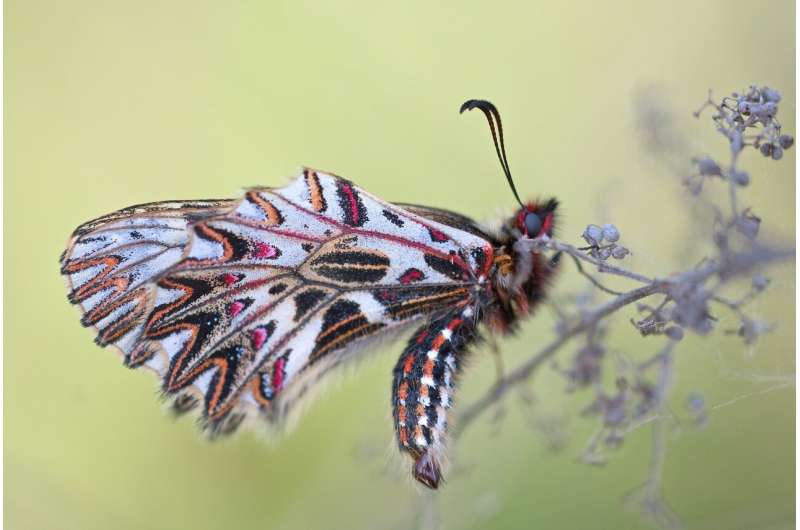This article has been reviewed according to Science X's editorial process and policies. Editors have highlighted the following attributes while ensuring the content's credibility:
fact-checked
peer-reviewed publication
trusted source
proofread
Advancing biodiversity research: New initiative bridges biodiversity and omics data standards

Biodiversity observation and research rely more and more on biomolecular data. The standardization of this data, encompassing both primary and contextual information (metadata), is crucial for enabling data (re-)use, integration, and knowledge generation. While both the biodiversity and the omics research communities have recognized the urgent need for (meta)data standards, they each have historically developed and adopted their own standards, making collaboration and data integration challenging.
To address the pressing need for interoperability between biodiversity and omics (meta)data standards, the Task Group (TG) for Sustainable DwC-MIxS Interoperability was formed. Its primary mission is to bridge the gap between the (meta)data standards of two distinct organizations, the Biodiversity Information Standards (TDWG)'s Darwin Core (DwC) standard and the Genomic Standards Consortium (GSC)'s Minimum Information about any (x) Sequence (MIxS) checklist, providing a sustainable framework for data integration.
The Task Group assembled a team of experts to build semantically precise and sustained interoperability between TDWG's DwC standard, and the MIxS checklist from the GSC.
This collaborative effort culminated in a methods paper, in which they report on building sustainable interoperability between DwC and MIxS. The paper was published in the Biodiversity Data Journal as part of a special collection, looking to demonstrate the advantages and novel approaches in accessing and (re-)using linked biodiversity data.
"With representatives from established biodiversity data infrastructures, domain experts, data generators, and publishers, we—ab initio—bridged the conceptual to the application space," write the task group members in their paper.
To ensure the sustainability and lasting impact of this initiative, TDWG and GSC have signed a Memorandum of Understanding on creating a continuous model to synchronize their standards.
"We trust that the activities of this TG will inspire similar activities between other metadata standards in this space, to break down silos and open a path to a more collaborative and interoperable future," they say in conclusion.
More information: Raïssa Meyer et al, Aligning Standards Communities for Omics Biodiversity Data: Sustainable Darwin Core-MIxS Interoperability, Biodiversity Data Journal (2023). DOI: 10.3897/BDJ.11.e112420
Journal information: Biodiversity Data Journal
Provided by Pensoft Publishers

















